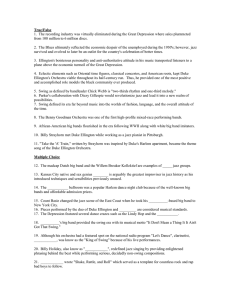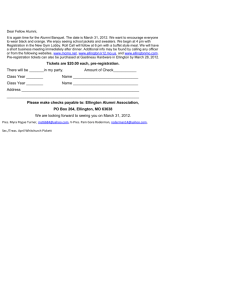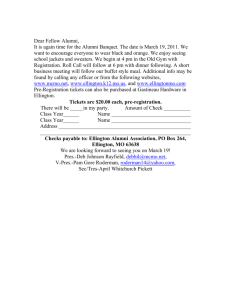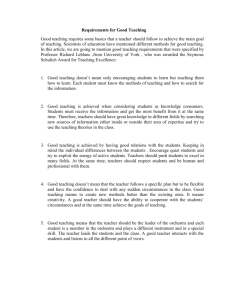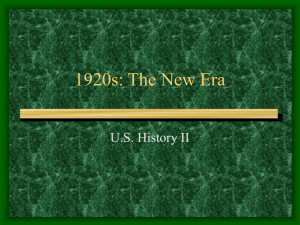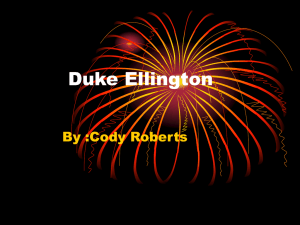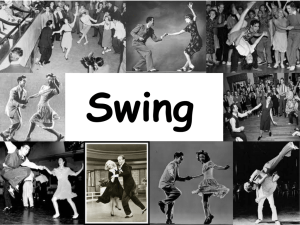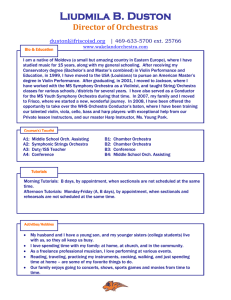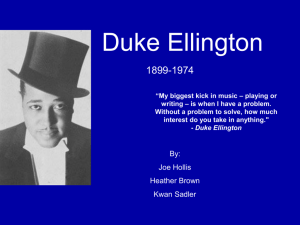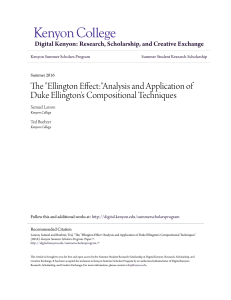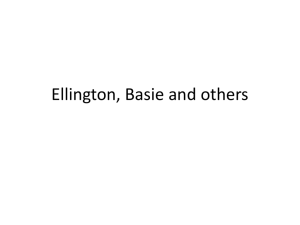REVIEW SHEET – JAZZ STYLES
advertisement
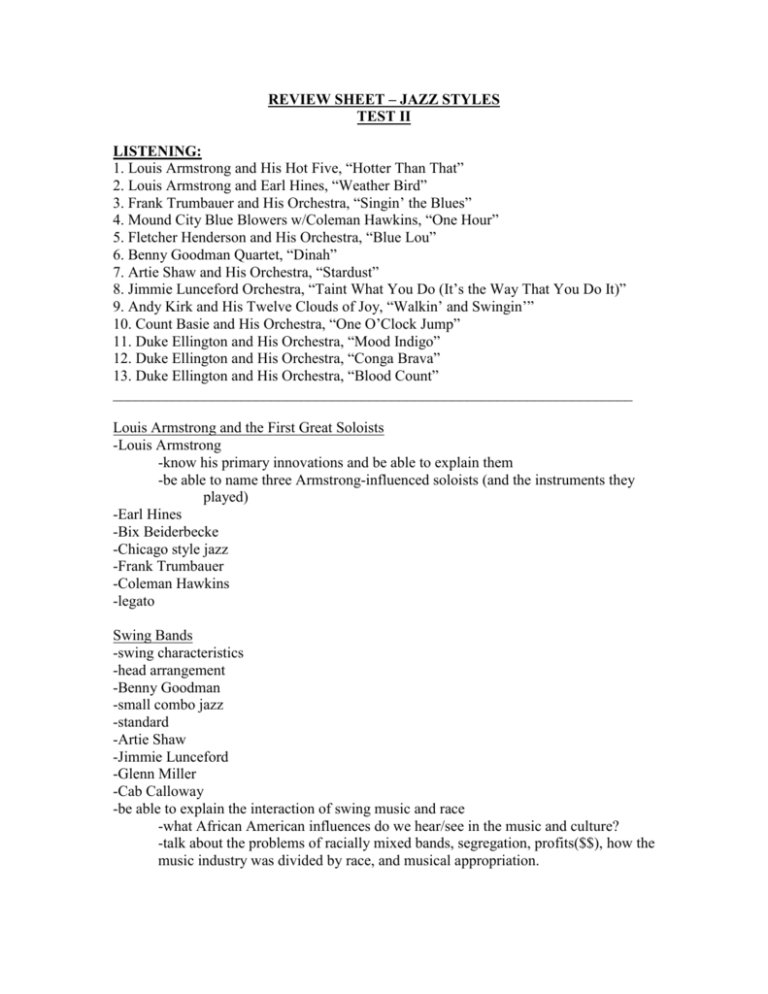
REVIEW SHEET – JAZZ STYLES TEST II LISTENING: 1. Louis Armstrong and His Hot Five, “Hotter Than That” 2. Louis Armstrong and Earl Hines, “Weather Bird” 3. Frank Trumbauer and His Orchestra, “Singin’ the Blues” 4. Mound City Blue Blowers w/Coleman Hawkins, “One Hour” 5. Fletcher Henderson and His Orchestra, “Blue Lou” 6. Benny Goodman Quartet, “Dinah” 7. Artie Shaw and His Orchestra, “Stardust” 8. Jimmie Lunceford Orchestra, “Taint What You Do (It’s the Way That You Do It)” 9. Andy Kirk and His Twelve Clouds of Joy, “Walkin’ and Swingin’” 10. Count Basie and His Orchestra, “One O’Clock Jump” 11. Duke Ellington and His Orchestra, “Mood Indigo” 12. Duke Ellington and His Orchestra, “Conga Brava” 13. Duke Ellington and His Orchestra, “Blood Count” _____________________________________________________________________ Louis Armstrong and the First Great Soloists -Louis Armstrong -know his primary innovations and be able to explain them -be able to name three Armstrong-influenced soloists (and the instruments they played) -Earl Hines -Bix Beiderbecke -Chicago style jazz -Frank Trumbauer -Coleman Hawkins -legato Swing Bands -swing characteristics -head arrangement -Benny Goodman -small combo jazz -standard -Artie Shaw -Jimmie Lunceford -Glenn Miller -Cab Calloway -be able to explain the interaction of swing music and race -what African American influences do we hear/see in the music and culture? -talk about the problems of racially mixed bands, segregation, profits($$), how the music industry was divided by race, and musical appropriation. Count Basie and Duke Ellington -territory bands -Kansas City -boogie woogie -ostinato -Mary Lou Williams -Count Basie – why was he the most famous Kansas City pianist and bandleader? What was the difference between other swing bands and ones from Kansas City? -head arrangement -Duke Ellington -Billy Strayhorn -Duke Ellington is considered one of America’s great composers. Ellington’s way of composing was different from how we usually think of composing. His method was as much a social practice as an individual one. Does this make him any less of a composer? The issue here is the nature of creativity – whose composition is it? His collaboration with Billy Strayhorn is famous, but it’s not clear who is responsible for what part of the music. Does this make these compositions less original? Less valuable? What does it say about our ideas of musical creativity? Is social composition as valid as individual composition?
